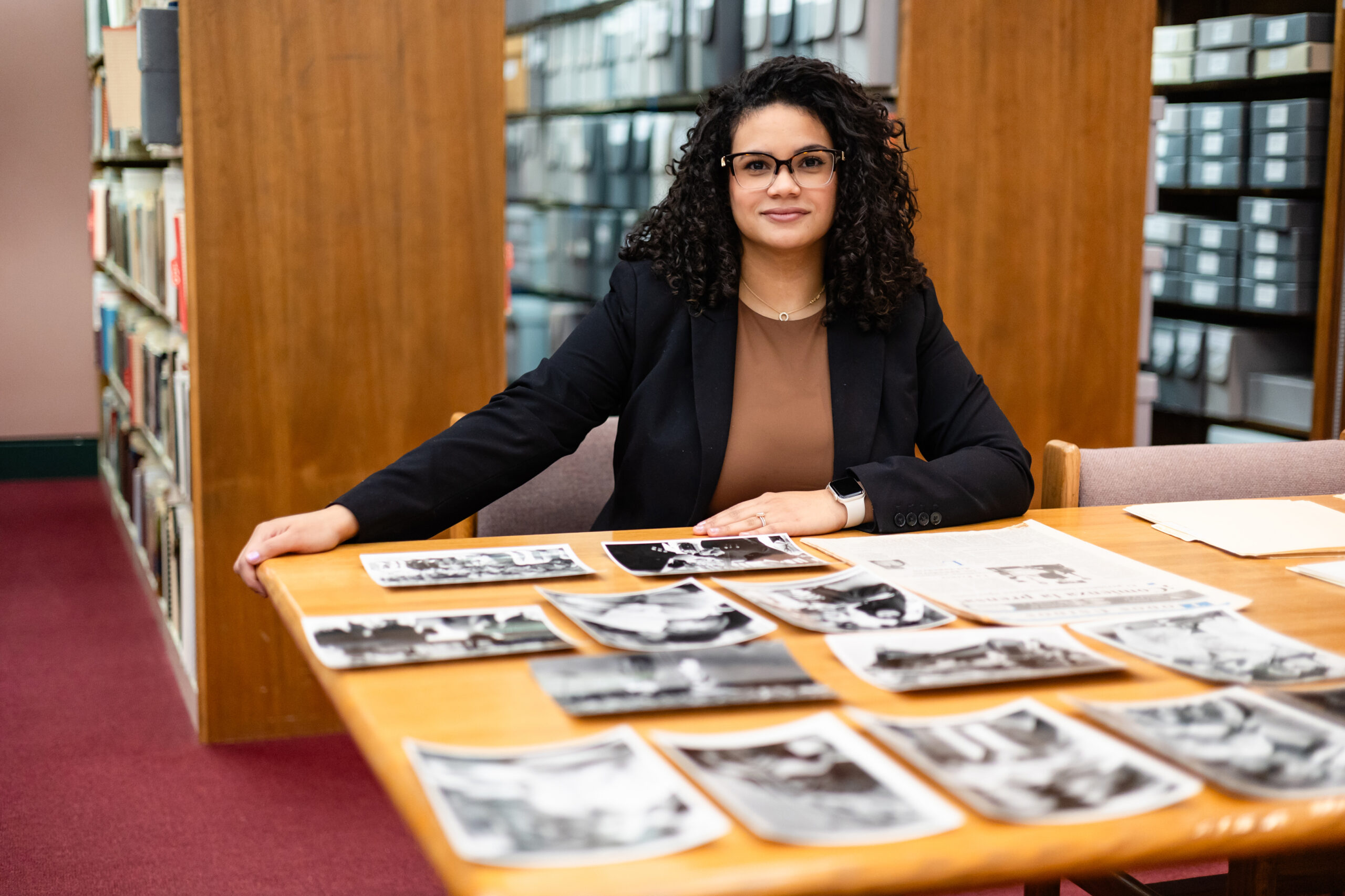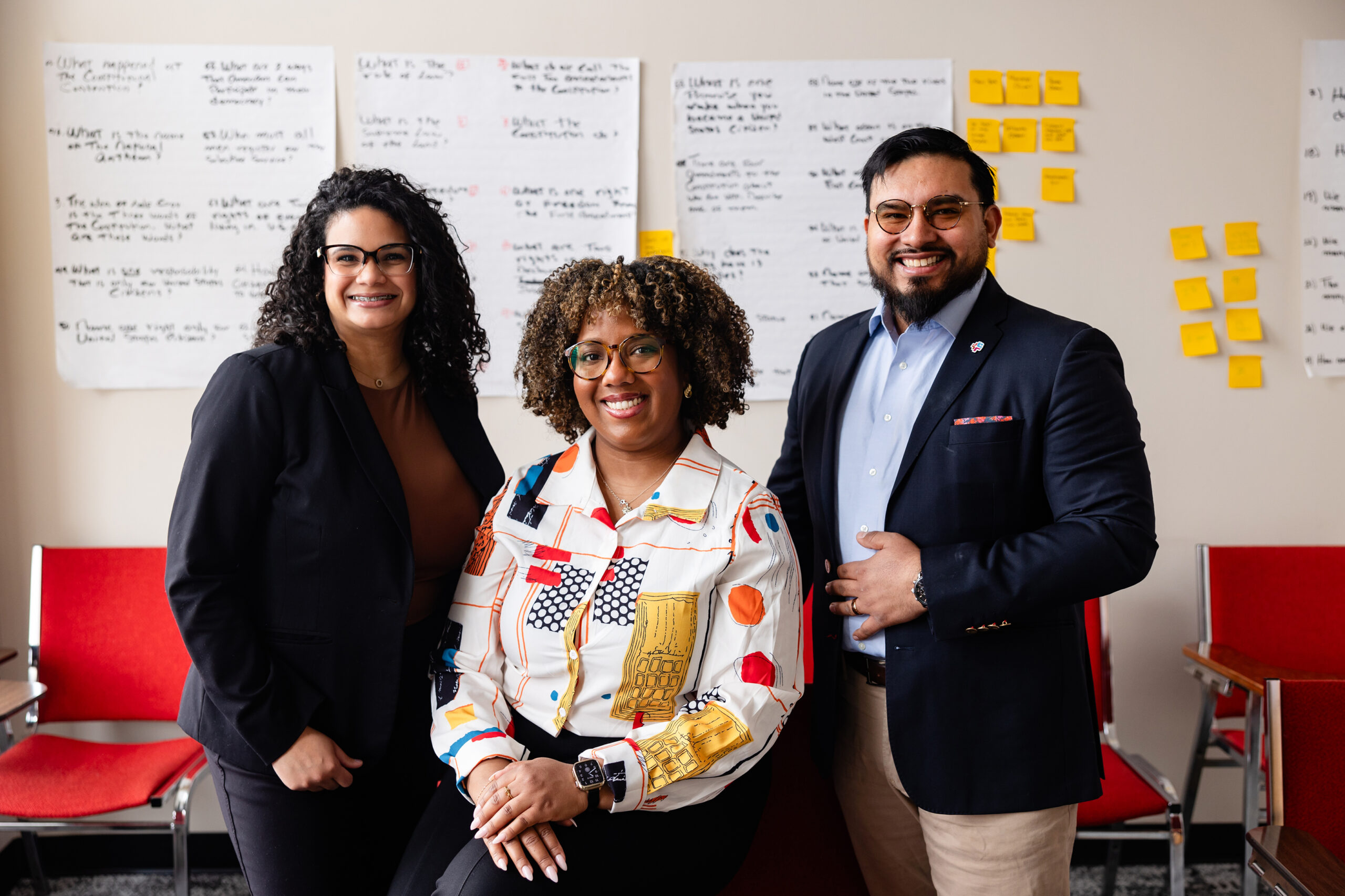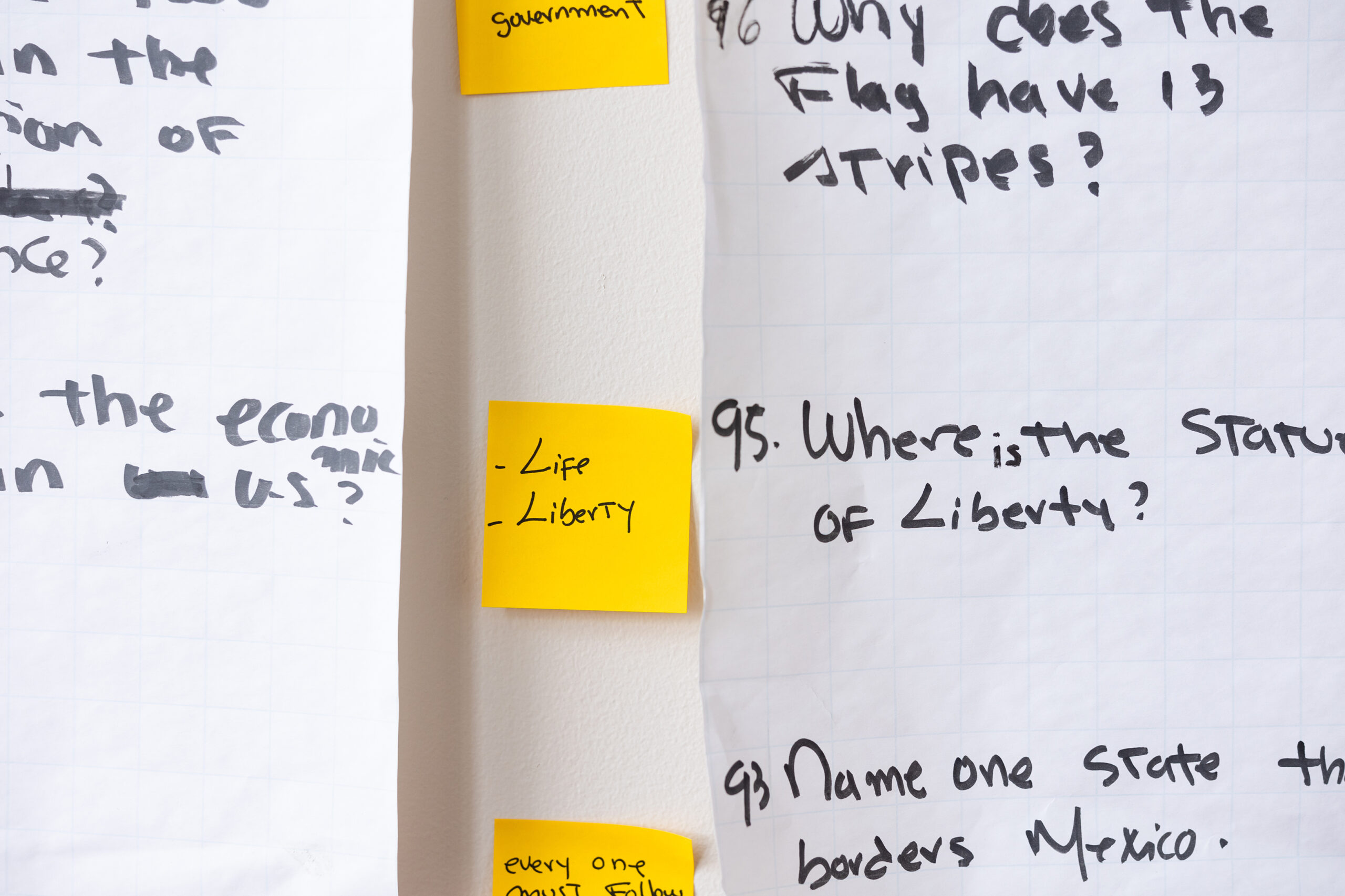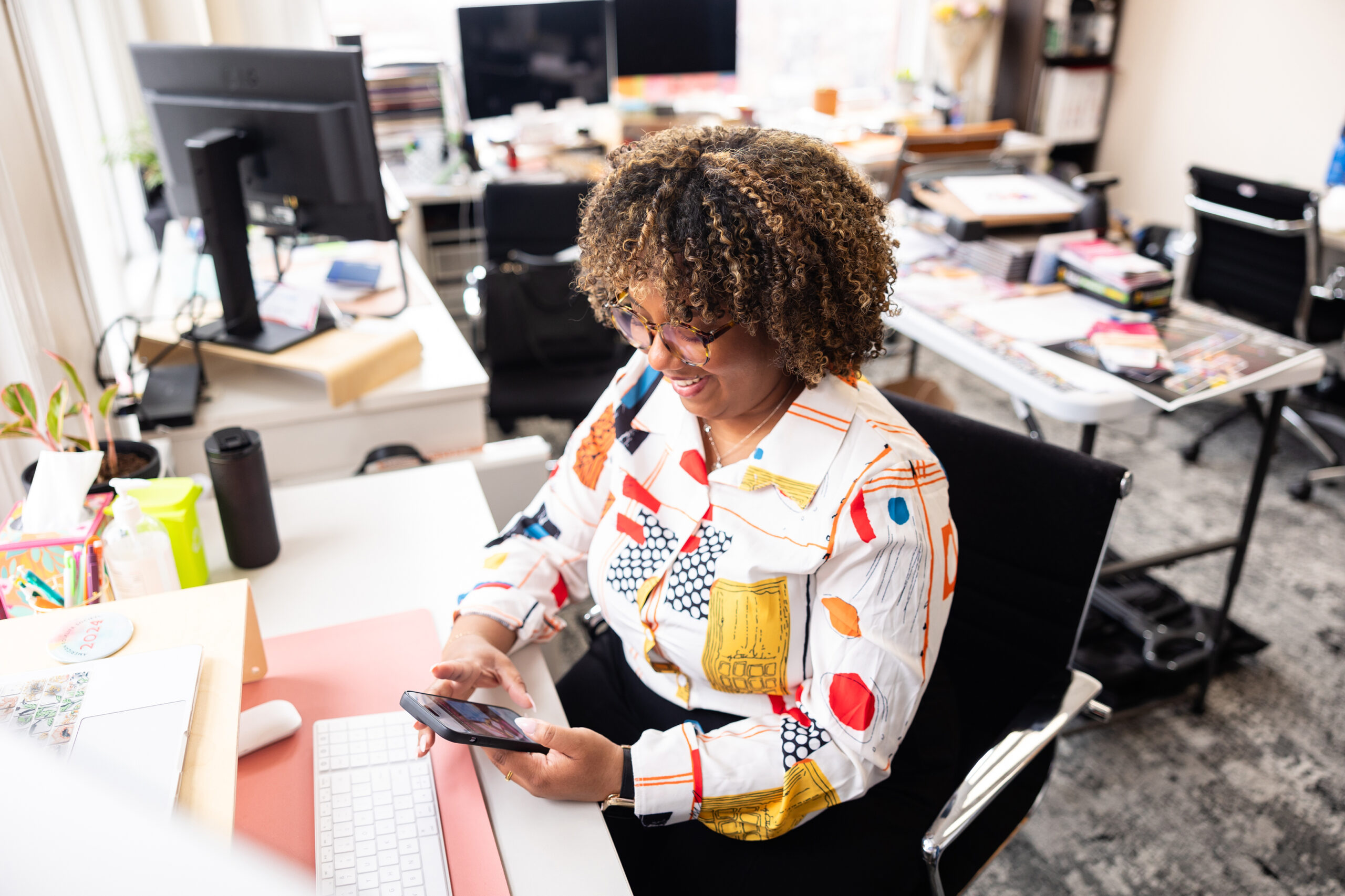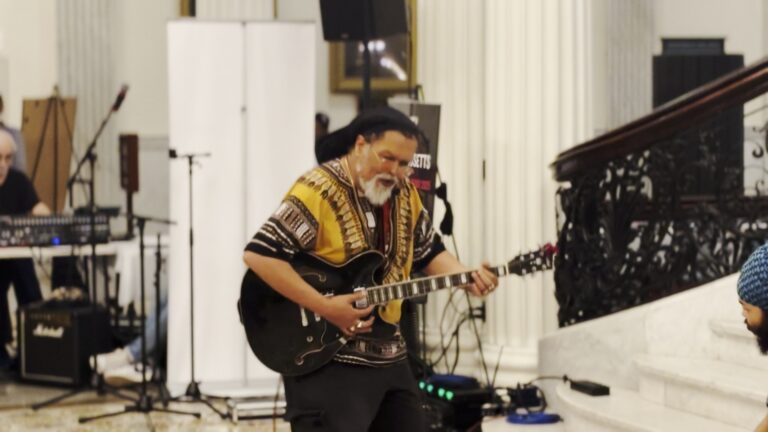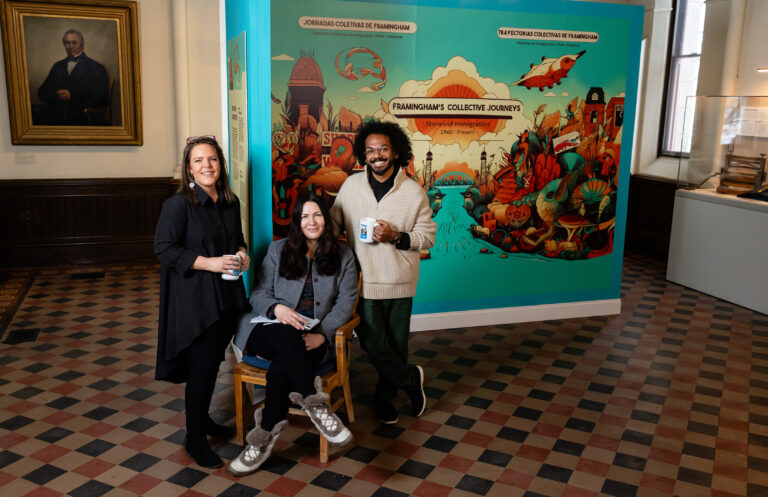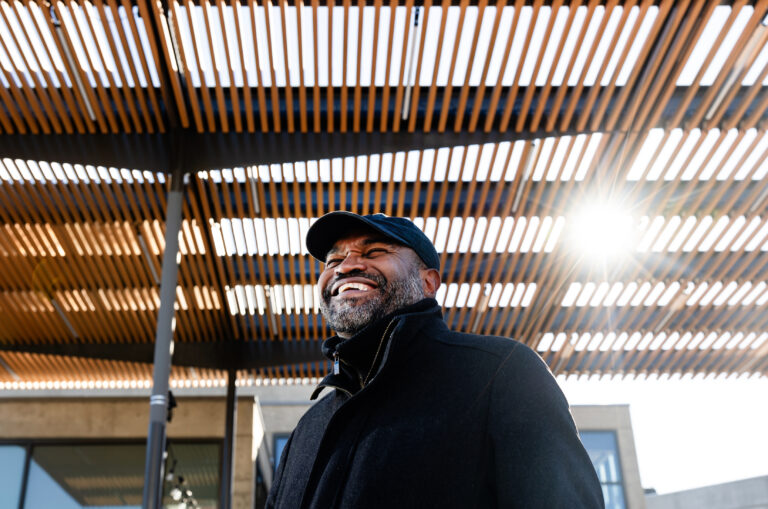The “Lowell Latinx Archive” is an oral history and photography project created by the Latinx Community Center for Empowerment (LCCE) in Lowell. We recently sat down with María Aybar, director of operations and founding member, and Diego Leonardo, executive director and founder, to reflect on the impact of community based storytelling.
LCCE is based in Lowell, which is a very diverse city. What originally inspired you to go about creating a Latinx archive?
María Aybar: At the center we do a lot of civic engagement work. And for a long time, we’ve seen that the Latinx community has a very low voter turnout. Because of that there’s a belief in the city of Lowell that all Latinx people, Latinos, Hispanics, they don’t participate as much as they should. I think that we’re very much a live community here in the city of Lowell. I think that there’s a lot of things that we are engaged in as individuals, maybe churches, for instance, or other community spaces that we’ve created. That narrative needs to shift and change around who we are. And I think that we need to give ourselves the opportunity to be the ones defining our stories. In addition to that, there was one specific moment that we had with a leader from the community here that said “I don’t really know any Latino leaders here.”
Diego Leonardo: We all looked at each other when that comment was made and we were like, “wait a second, we know leaders. There’s a bunch of leaders.” But what is the definition of a leader from their perspective versus our perspective? That’s when we started to realize that we need to shift into elevating the voices of the community members.
“That narrative needs to shift and change around who we are. And I think that we need to give ourselves the opportunity to be the ones defining our stories.”—María Aybar
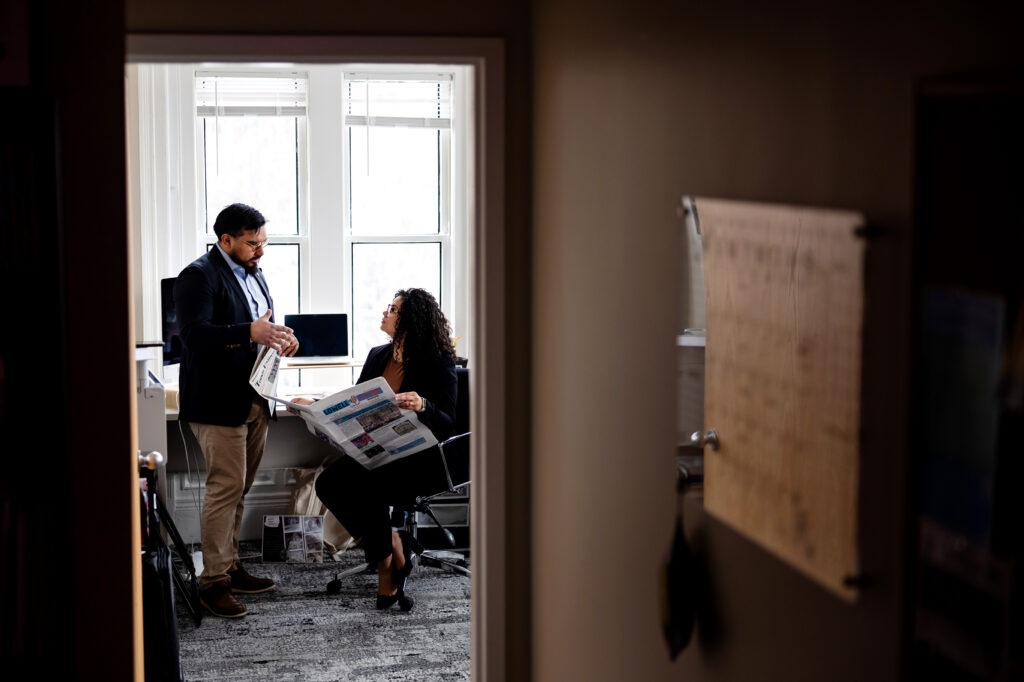
What do you think of this idea of Expanding Massachusetts Stories?
María Aybar: I really love the expansion of Massachusetts stories and how it’s framed. When I was in college I became very interested about this idea of the silences that exists in our own history. I am from the Dominican Republic. We have a lot of issues when it comes to race. Many times we tend to erase the stories of certain participants that made me who I am today. As a Dominican, I’m not only from Spanish descent but also African descent and Taíno descent. But for a long time, it was the white stories that I was hearing and that I was holding on to. That was what the only thing that was passed on. When you’re in college, you have time to do a lot of reflection. I took a couple of courses around the history of slavery in the Americas. It really allowed me to understand that so many times we hear one side of the story, and don’t necessarily have the whole picture. Here in Massachusetts for the longest time I only had one side of the story–about the mills. Right? About the mill girls, for instance, the immigrants that came from Europe. And the work here in the factories. And they were the ones that really built up Lowell. To me, I’m like, “that’s really not enough, because what about me and my family? What about Latinos that I know have been here since the 60s, the 40s?”
For me, being able to expand Massachusetts narratives is just so important because the youth deserves to feel visible and seen. And that wasn’t necessarily something that I had growing up here in Lowell, but that now I know we have the responsibility to do because we know better. I think that to us, this is a way of resisting. Really giving us the opportunity to understand that are the stories of Latin American studies are important, that our stories are important, they need to be elevated, need to be told, need to be shared. And ultimately, that to me is what it means to expand Massachusetts stories, to really not only focus on one narrative, but really take a look at the many others and really give ourselves the opportunity to learn from those stories and see how we can do better.
Diego Leonardo: One thing I want to mention about Mass Humanities is that they’re able to connect us with others that are doing similar work, or they can elevate the connections to others. And, they also make sure we can continue doing the work. That’s something I really appreciate because every time I’m able to come to Mass Humanities meetings or I go to an event about history, I get to see Mass Humanities folks there. There’s this network that exists around that and we can tap into to get those opportunities.
María Aybar: We’re so grateful to receive this grant. It really helps us see people are interested in this. This is worthwhile. I think that with Mass Humanities, the follow-up that we have been able to receive, the training, for instance, all the workshops that we have been able to attend, the events that we have had the opportunity to either speak at or be part of—we appreciate the follow up. This really feels like a collaboration.
For me, being able to expand Massachusetts narratives is just so important because the youth deserves to feel visible and seen. And that wasn’t necessarily something that I had growing up here in Lowell, but that now I know we have the responsibility to do because we know better. I think that to us, this is a way of resisting.—María Aybar
Approximately 20% of Lowell’s population is Latino. You have communities of Puerto Ricans, Dominicans, Colombians, Ecuadorians, Brazilians, Guatemalans, to name just a few. How did you go about building an archive that acknowledges both the shared cultural values and the differences among these identities?
María Aybar: Well, there’s a lot of nuances. Things are very complex. You want to show the differences, but at the same time, you want to show the things that bring us together as well. How do you show both of them right at the same time? And I think that’s something that we were able to explore with bringing so many professionals to the table. We had the archivist from the Center for Lowell History. We had professors from UMass Lowell: Professor Bob Forrant; Professor Wilson Valentín-Escobar, who helped train our oral history collectors; and Professor Teresa Gonzales. And I think that in working with them, it was really important for us to understand that we are in touch with the community. We know the community. We know how to get them together, how to bring them together. But we do need expertise in terms of, “how do we develop some sort of protocol for the questions that we’re trying to ask? How do we actually use methodology that reflects the principles of the humanities? Of history?” I think that was that was very important. We really made this a really a community project. And I think that’s the I think that’s why we’re so proud of these work.
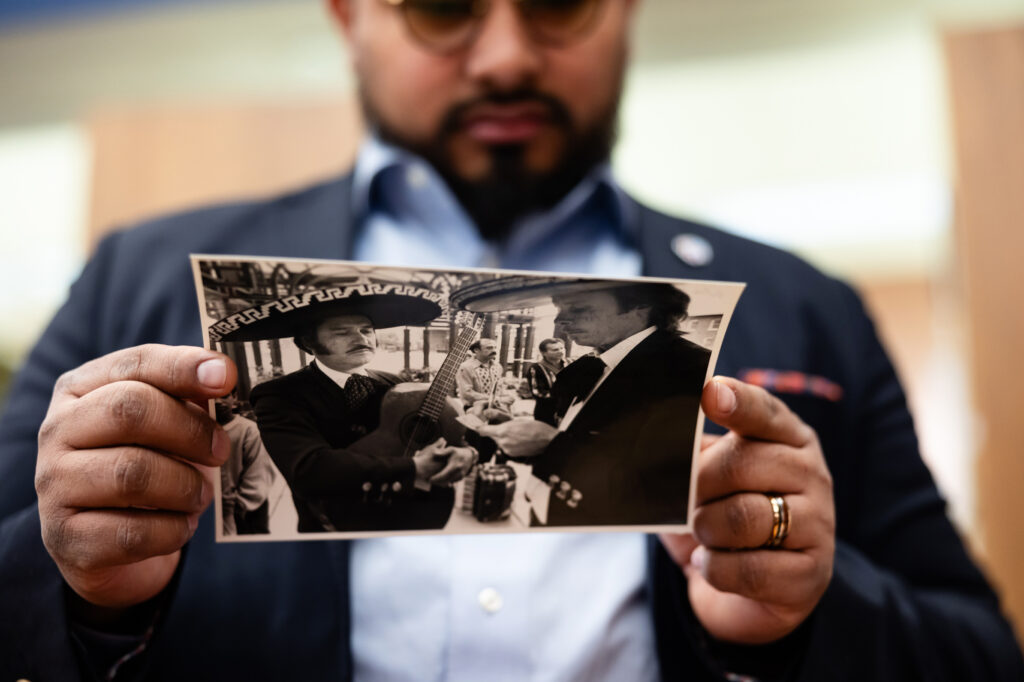
What sort of impact do you think the archive had on Lowell residents? How did it impact LCCE, too?
Diego Leonardo: One of the things that made me personally realize that this is great work that we’re doing was when we got invited to the annual meeting of the National Association of American Folklore to do a presentation on the archive. I thought, “wait a second, why are people from all over the country interested in something that a small town in Massachusetts is doing?” There is this repercussion that can happen all over and also incentivize other people to do oral history archives.
As part of your grant, LCCE hosted a series of “let’s share” events for community members. Let’s share a culture, let’s share a game, let’s share a story. Can you explain the goal of these gatherings?
María Aybar: I think those were really amazing events. We need more spaces like that. There’s more things that we need to to do around that, making stories accessible and really building that dialogue. After every single presentation, people always had something to say. All these events were in Spanish as well. So I think that made it even more accessible. And it really spoke to the community they want to get to. In the future, we of course hope to have translation available for English speakers, for Portuguese speakers, for Haitian Creole speakers, and really make that a teaching moment for all of us. Our exhibition is really about that,
for us to to learn. These are not stories that are being discussed right now at the high school, or at the elementary or middle school levels. We need to be, right now at least, the ones doing this and and giving this space to the community, to the youth specifically.
Diego Leonardo: The events in the series are making us realize that we can make humanities cool for the mainstream. Make it popular. We had this event called, “let’s share a story.” It was an immigration story. We had four women share their stories of immigration. One was from Cuba, another one from Brazil, and two from the Dominican Republic. They shared their stories, but then we enhanced the event by inviting authors to come in and host a workshop on poetry. They covered how people can tell their story through poetry. We also brought in a bomba performance, which was a musical way of celebrating or sharing their stories and making sure they see them as part of something bigger. It just made me realize that we don’t have to just do what is standard, “the humanities needs to be this” or “writing needs to be that.” We can interconnect everything. Making that connection made us realize that there is there is a need, and hunger, to do more things like this.

